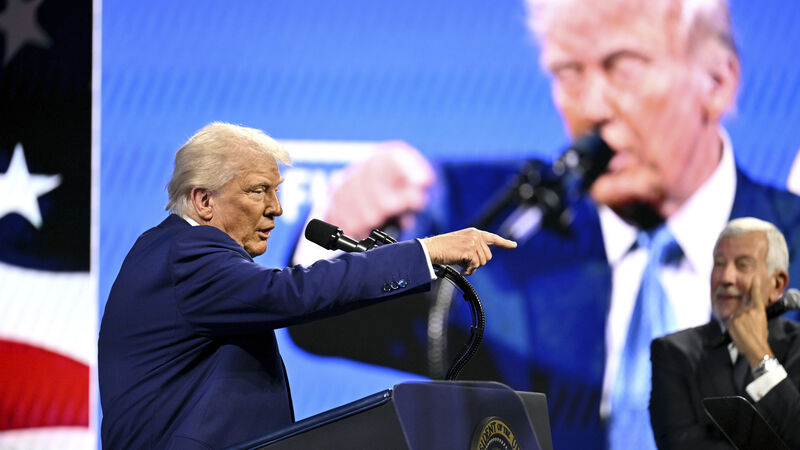Paul Hosford: Trump’s America goes it alone — and the world is left to pick up the pieces

Just weeks into his second presidency, Donald Trump has doubled down on his refusal to acknowledge the rules of international engagement. Picture: Pool/AP
Try from €1.50 / week
SUBSCRIBE
Just weeks into his second presidency, Donald Trump has doubled down on his refusal to acknowledge the rules of international engagement. Picture: Pool/AP
During the 2016 Republican primaries, when Donald Trump’s candidacy still had more of an air of publicity stunt than a genuine political campaign, one thing confounded his political opponents when it came to debates — his unpredictability.
How do you debate with someone who doesn’t recognise the same rules of engagement, who calls opponents liars, and comes up with nicknames on the spot?
Already a subscriber? Sign in
You have reached your article limit.
Annual €130 €80
Best value
Monthly €12€6 / month
Introductory offers for new customers. Annual billed once for first year. Renews at €130. Monthly initial discount (first 3 months) billed monthly, then €12 a month. Ts&Cs apply.
CONNECT WITH US TODAY
Be the first to know the latest news and updates
Newsletter
Sign up to the best reads of the week from irishexaminer.com selected just for you.

Select your favourite newsletters and get the best of Irish Examiner delivered to your inbox
Thursday, February 12, 2026 - 2:00 PM
Thursday, February 12, 2026 - 3:00 PM
Thursday, February 12, 2026 - 3:00 PM
© Examiner Echo Group Limited